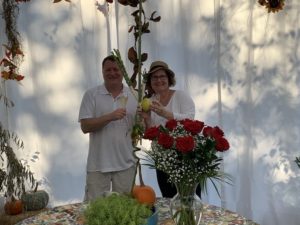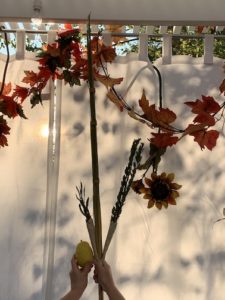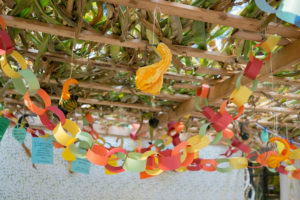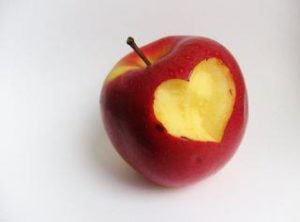Shavuot: “We Are One Person, One Heart”
Yom Hazikaron and Yom Ha’atzmaut, Remembering the Fallen Soldiers…Celebrating the Future
Why does Israel’s Memorial Day and Independence Day occur back to back on the Jewish calendar? Because, first we remember…then we celebrate. To find out how YOU can play an active role in these two holidays starting tomorrow, brew a cup of cherry blossom tea and READ ON. Continue reading
Another Passover In A Pandemic—It’s A Wrap—Dayenu
As the second Passover pandemic nears the end, and the last box of matzo is whittled down to crumbs, I’ wrote a year-in-review parody of “Dayneuâ€, the Hebrew name of a popular Passover song that means, “It was enough for usâ€. While we have experienced tremendous loss, some of us way more than others, we gained a lot as well, a new appreciation for living, breathing, taking care of each other, and Zoom. Dayenu reminds us to recognize that what we have is enough and to not take the miracles for granted.
So, here goes, it helps if you know the original lyrics, which can be found HERE.
PANDEMIC PASSOVER DAYENU
If He gave us Netflix
and not season three of Shtisel to binge on
Dayenu, it would have been enough
If He provided food on the table
and not offered us carryout from our favorite Thai restaurant
Dayenu, it would have been enough
If He temporarily shut down roads, airways, waters, to prevent the virus from spreading
and not rewarded us bluer skies, cleaner air, less noise and pollution, and a better environment for nature and animals
Dayenu, it would have been enough
If He filled the grocery stores with plenty of food
and not given us Shipt delivery service
Dayenu, it would have been enough
If He supplied pleated disposable masks
and not showed us how to make washable face coverings with Hanukkah menorah patterns
Dayenu, it would have been enough
If He gave us Shabbat and the Jewish holidays
and not invented the technology to join fellow congregants and community virtually, while wearing our pajamas
Dayenu, it would have been enough
If He built us temples
and not offered drive thru Shofar blowing
Dayenu, it would have been enough
If He educated our rabbis, clergy, leaders, and community organizations
and not created Zoom to keep us connected and inspired
Dayenu, it would have been enough
If He gave us rituals to guide us through life cycle events, from birth to death and every simcha in between
and not invented computers to attend a wedding, bris and shiva all on the same day
Dayenu, it would have been enough
If He provided us soap to constantly wash our hands
and not the liquid moisturizing kind in a pump that smells like jasmine
Dayenu, it would have been enough
If He gave us bleach to sterilize the door knobs, kitchen counters, and mailbox every time we touched it
and not the convenient disinfectant wipes that pull out of a canister
Dayenu, it would have been enough
If He gave us shelter
and not heat, air conditioning, and essential oil diffusers
 Dayenu, it would have been enough
If He trained doctors, nurses, and hospital workers to heal us
and not asked them to risk their own lives to save ours
Dayenu, it would have been enough
If He watched over front line heroes and first responders
and not opened our hearts to bring them pizza and show our support
Dayenu, it would have been enough
If He cried with us when we were in pain, lost, or confused
and not shown us how to do His work with compassion, empathy, and generosity
Dayneu, it would have been enough
If He made wise the scientists and pharmacists to research and development new medicines, treatments and vaccines
and not administered shots in arms around the world in record time
Dayenu, it would have been enough
If He brought forth teachers to care about their students
and not provided virtual classrooms
Dayenu, it would have been enough
If He empowered parents to juggle their careers and homeschooling
And not reopened schools before summer
Dayenu, it would have been enough
If he showed me the unconditional love of a dog
and not given me a second toy poodle to pick up poop after
Dayneu, it would have been enough
If He taught us skills to earn an income
and not shown us how to work from home
Dayenu, it would have been enough
If He gave us the hibernation of winter and the resurgence of spring
and not rainbows, yellow daffodils, purple crocus, and white blossoming pear trees
Dayenu, it would have been enough
If He blessed us with loved ones, family, friends, neighbors, community far and wide
and not kept us connected through social media while physically apart
Dayenu, it would have been enough
If He showed us generosity and kindness to strangers
and not returned the favor ten-fold
 Dayenu, it would have been enough
If He watched over people who had to close their doors during the economic shutdown
and not rallied us to support small local businesses.
 Dayenu, it would have been enough
If He believed in us
and not given us hope and miracles
Dayenu, it would have been enough
If He vaccinated me when it was my turn
And not on January 20, 2021, the day the first woman vice president was sworn in
Dayenu, it would have been enough
If He had a sense of humor
And not brought me a Shipt shopped named Moshe on Passover
Dayenyu, it would have been enough
And if you made it all the way to the bottom of this blog, thank you, here’s your afikomen (“dessert”)!
The Plague of Locusts Are Coming!
They’re baaaack! As we describe in the Passover story, locust is the eighth plague that God inflicted on the Egyptians. The Hebrew word for locust is Arbeh, which means “many”, symbolizing that the locust came in great numbers as punishment for the Egyptians trying to limit the Jews from multiplying and stopping God’s blessing of Harbeh Arbeh, “you should be fruitful and multiply.”
Matzo Symbolizes “Bread of Aflliction and Freedom”
Passover is a week long festival, and if you’re still eating matzo here’s some food for thought on this key symbol of the Passover Seder.
Passover Pandemic Gives New Meaning To Freedom
Yesterday felt like Spring, a beautiful sunny day with all the colorful flowers in bloom, and a great day for a much needed walk after cooking and cleaning.
Then as the sun began to set, the clouds rolled in, the sky grew darker, and right on cue, the rain came down, watering the bright green grass, yellow forsythia bushes, and pink magnolia tree that are the first to blossom in our yard. As we sat down to dinner, I remember last year when it thunder stormed on the first night of Passover and I was convinced God sent the plague of hail to make sure we were doing the Seder during the coronavirus pandemic, even as the patio furniture blew over. This year, a mist of rain came through the open window, and it felt soothing, refreshing, cleansing, like a new beginning.
Our Anniversary In The Sukkah
Twenty seven years ago, my husband and I stood under the huppa (chuppa) and made our vows to stick together through the best and worst of times and everything in between. We made a commitment to create a life together based on Jewish values under the watchful eye of God, that’s what a huppa is all about.
Today, on the last day of Sukkot, which is also Shabbat, known as Hoshana Rabbah, we are renewing our vows to each other and, by doing certain rituals under the sukkah, we are renewing our vows to God and the the Jewish people.
When I was a bride I clutched a bouquet of ivory roses as I walked down the aisle towards my soon-to-be husband who stood under the huppa waiting for me with a nervous smile on his face. Today, I hold in my hand the sweet smelling fruit called etrog (esrog) with the palm, myrtle and willow branches of the lulav, and wave the Four Species together in all directions in the sukkah. Scott’s still smiling, but this time because I’m shaking my lulav and we’re having strudel for dessert.
Lulav and Etrog Symbolize Unity
I have chosen Sukkot as the theme of this year’s anniversary–why not–considering the actual modern gift associated with the 27th year is “sculptures.” So, here’s my attempt to connect the meaning of the sanctity of marriage to this joyous holiday.
The lulav and etrog can be compared to a married couple, who bring their own unique qualities and strengths to a relationship. A lulav is a slender palm branch that is held together with two willow branches and three willow branches. An etrog, or citron, looks like an enlarged bumpy lemon and a whiff of the subtle scent is heavenly and intoxicating. Together, the branches and fruit have their own beauty and symbolism.
A midrash explains that the Four Species symbolize the importance of unity among different types of Jews. The etrog has both a flavor and a scent, like a Jew who is both learned and observant of the commandments. The lulav is from a date palm, and so it has a taste but no scent. It is likened to a Jew who is learned but does not apply that knowledge in action. A myrtle has a pleasant odor but no taste, and it represents the Jew who has little book learning behind his or her observance. Finally, the willow lacks both fragrance and taste, just like the Jew who neither studies the Torah nor keeps the commandments. These differences among Jews are substantial, yet we can still come together in solidarity, just as the lulav and etrog are bound together to merit a blessing. Same as a married couple. We bring our own unique qualities to the relationship, and we are better, stronger when we are committed as one.
Raise The Roof On The Symbolism of Sukkot
You shall dwell in huts (sukkot) for seven days. Every member of the Jewish people shall dwell in huts, so that your generations shall know that I had the Israelites dwell in huts when I took them out of Egypt.
Many years ago when I built my first sukkah in my own backyard, I was super excited to find a pile of freshly cut tree branches in the temple parking lot in carpool line.
It was fate. Or as we say in Hebrew, kismet. Since nobody else was claiming this tree limb treasure, I somehow managed to drag the logs like a lumberjack to my van and shove the messy branches into my newly vacuumed back seat. Little did I know these leafy sticks that I was about to lay on the roof of my sukkah had a name, s’chach  and I was doing a mitzvah. Continue reading
Rosh Hashanah Feast Serves Up Symbolism
Jewish holidays like Rosh Hashanah are filled with rituals, tradition, and symbolism that nourish the body and the soul through food, and we’re not talking about brisket and matzo ball soup that always earn a spot on the menu.
The rich and abundant foods served on Rosh Hashanah are called simanim, which means “signs†or†indicators.†Like the special foods we eat at a Passover seder, simanim give us a taste of Jewish wisdom by directing us to improve ourselves and return to a life with more purpose and meaning. This idea of teshuva is what the High Holidays is all about, little did we know it tasted so good, with a dash of Yiddish pun.
So, let’s dig in! Continue reading
The Sounding of the Shofar Awakens The Soul
One of the highlights of the high holidays is to hear the shofar.
The shofar, a hollowed out ram’s horn, is the most ancient musical instrument used throughout history as a rallying call to bring people together. In ancient Israel, the shofar announced the New Moon (Rosh Chodesh), was blown in the desert as a battle cry to declare war and celebrate victories, was blasted on Mount Sinai when the Jewish people received the Ten Commandments, and the Hebrew tribe Levites of the Holy Temple played the shofar as one of their musical instruments.
In modern times, the shofar most commonly blown like a trumpet to signal the coming of the New Year—Rosh Hashanah—and to awaken our souls and bring us closer to God.
Traditionally, the most common place to hear the shofar is in synagogue, but this year because of covid19, many of us will hear the blast of the shofar outdoors, in a park, on a neighborhood street, in our backyard, or virtually on a computer. Continue reading








